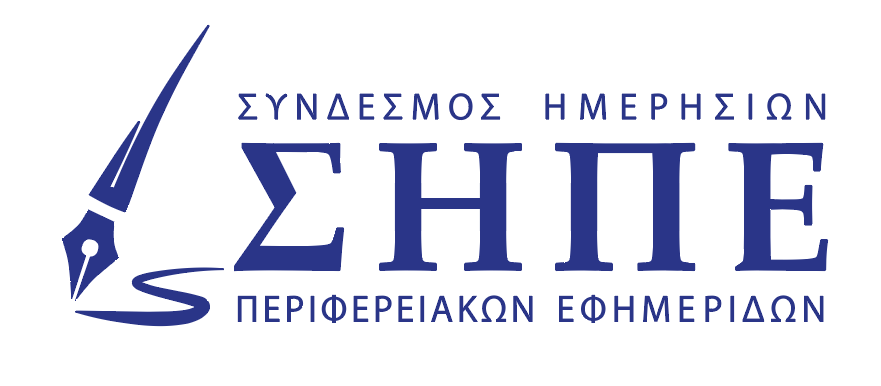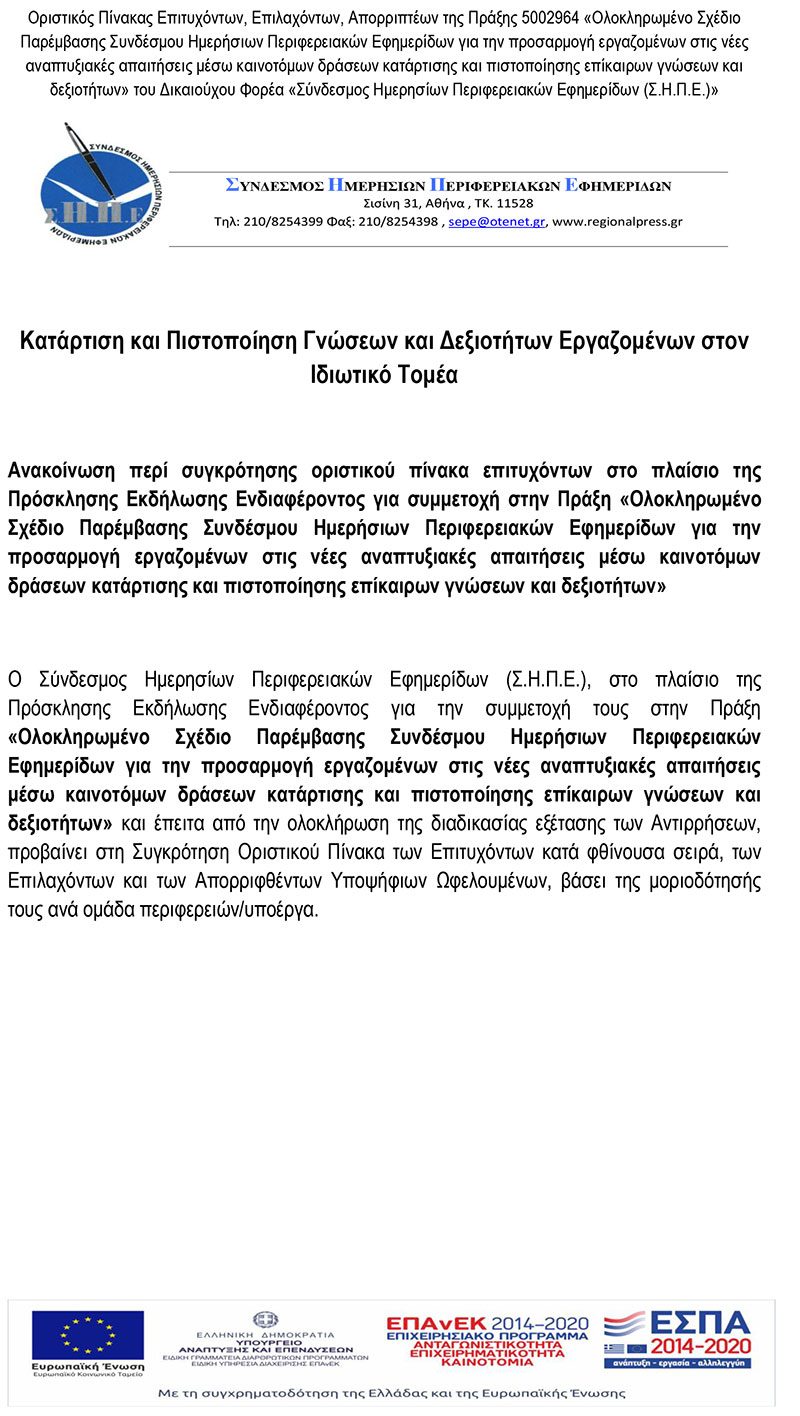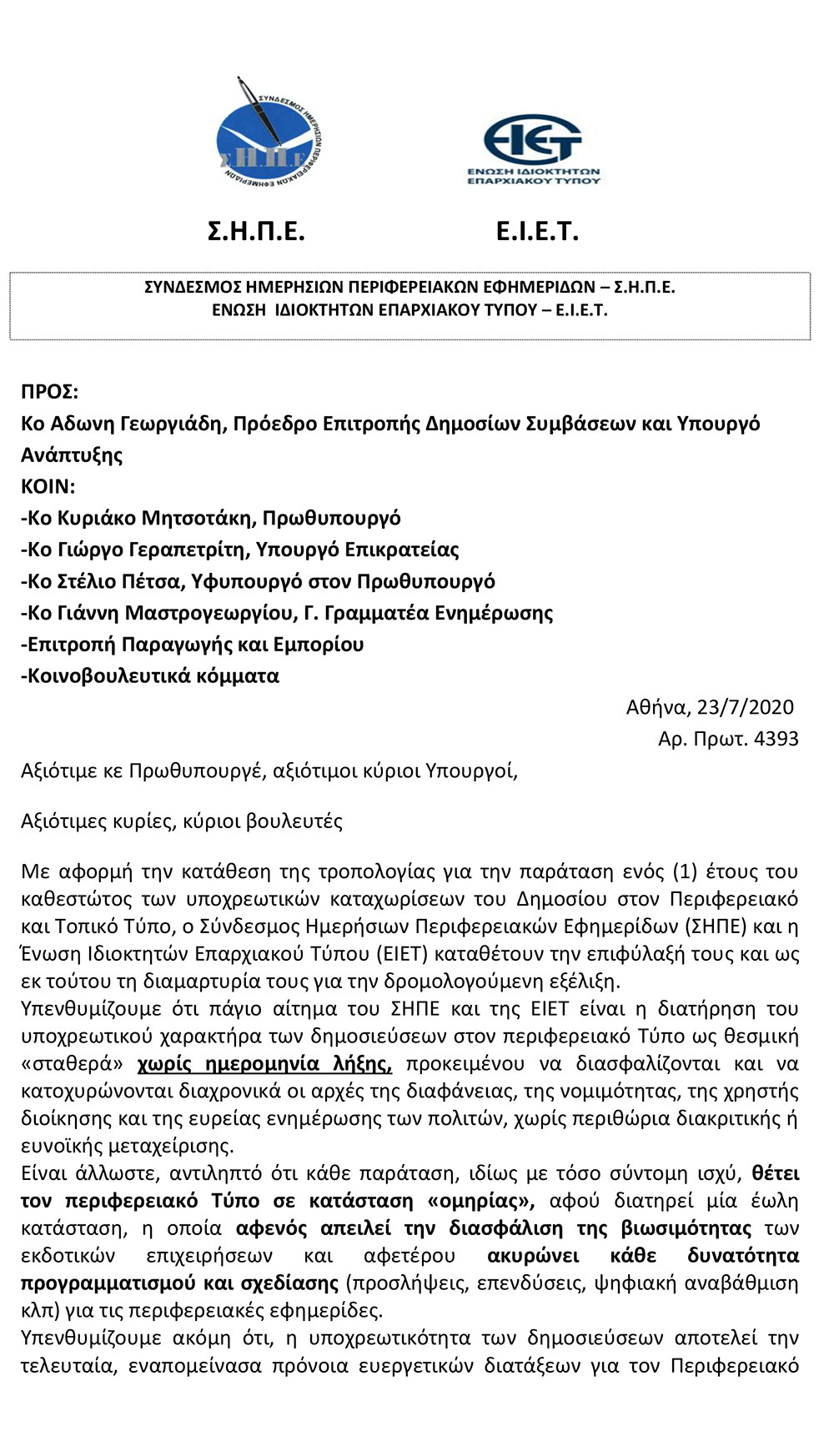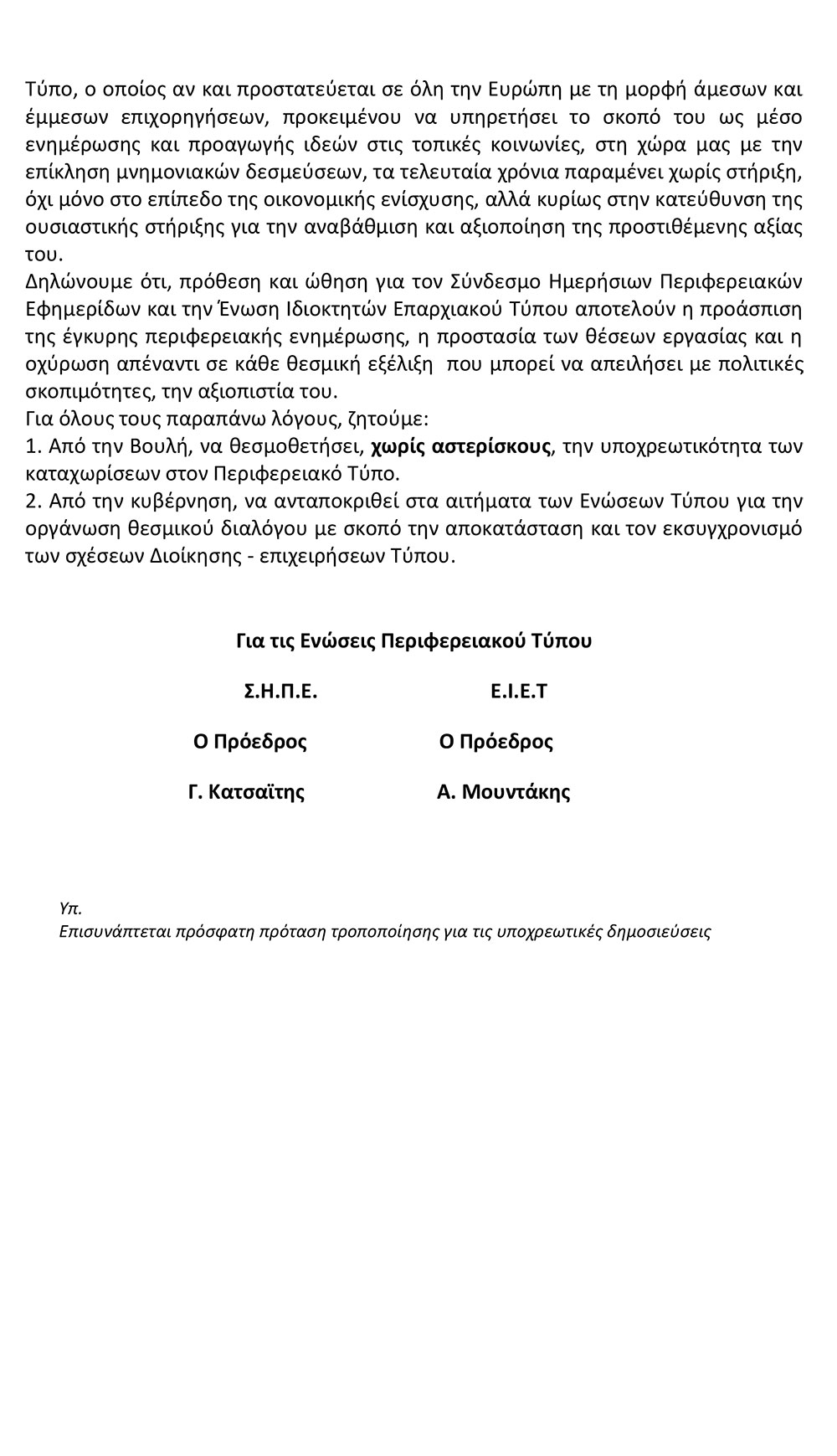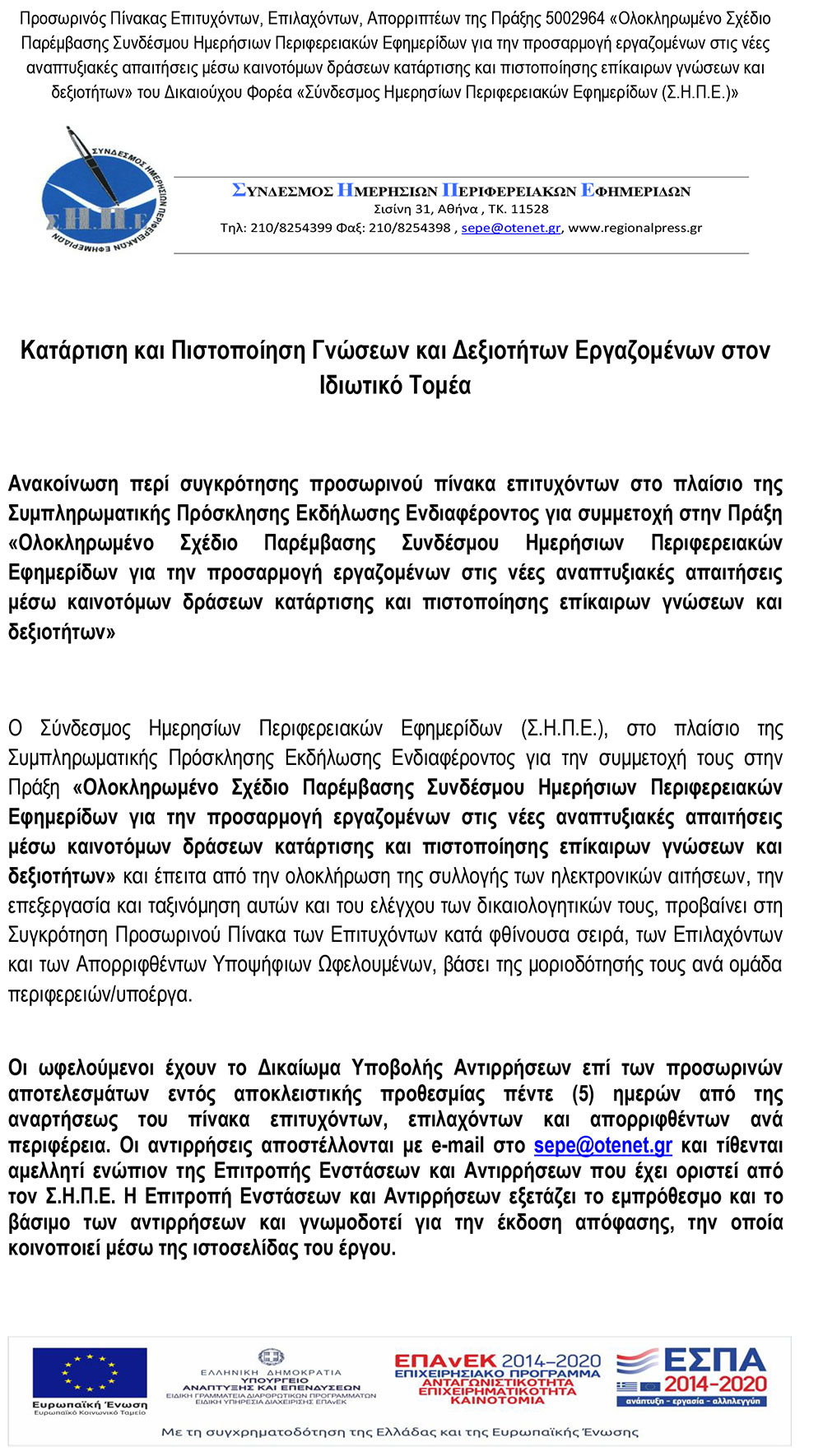Παρακαλώ κάνετε κλικ παραπάνω η εδώ , για να δείτε ολόκληρο τον πίνακα σε μορφή PDF
Η Πράξη με τίτλο «Ολοκληρωμένο Σχέδιο Παρέμβασης Συνδέσμου Ημερήσιων Περιφερειακών Εφημερίδων για την προσαρμογή εργαζομένων στις νέες αναπτυξιακές απαιτήσεις μέσω καινοτόμων δράσεων κατάρτισης και πιστοποίησης επίκαιρων γνώσεων και δεξιοτήτων» έχει ενταχθεί στο Επιχειρησιακό Πρόγραμμα «Ανταγωνιστικότητα Επιχειρηματικότητα και Καινοτομία 2014-2020» και χρηματοδοτείται από την Ευρωπαϊκή Ένωση (Ευρωπαϊκό Κοινωνικό Ταμείο) και από εθνικούς πόρους μέσω του ΠΔΕ.
Φορέας χρηματοδότησης είναι το Υπουργείο Ψηφιακής Διακυβέρνησης.

